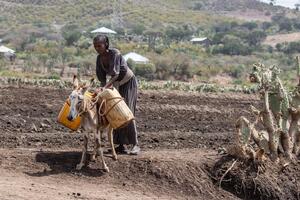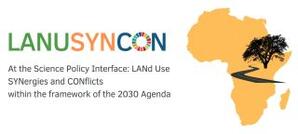Agriculture

Unlike any other region of the world, Sub-Sahara Africa is suffering from malnutrition and an increasing pressure on land to produce as much food as possible. At the same time, agricultural products should be produced as sustainable as possible and without heavy use of pesticides, which have led to a sharp decline in insects. Agriculture has the potential to create trade-offs as well as synergies between SDGs, such as in the context of the action of securing food production (SDG2) and biodiversity protection (SDG15). In our research, we focus on these synergies and conflicts moderated by different agricultural practices and contextual factors such as climatic, ecological and socioeconomic variables.
Master and doctoral research on agriculture:
- Agricultural practice options for synergies between food production and biodiversity conservation in Kenya by Hannah Kamau
- Mapping the suitability of bio-economic innovations in Vietnam’s agricultural sector by Uyen Tran
- Measuring bioeconomy's contributions to the Sustainable Development Goals achievement in Brazil by Fernanda Martinelli
- Optimizing Conservation and Livelihood Development: A Case Study of Igando-Igawa Wildlife Corridor in Tanzania by Qambemeda Masala Nyanghura
- Global risk of emerging social-ecological land use conflicts: A modelling approach by Ines Jendritzki
- The impacts of land use types/land cover on mosquito larval abundance in Kenya’s Mwea and Kisumu counties: implications for malaria transmission and persistence by Slavena Manolova
- Modeling the Suitability of Profitable Diversified Maize Production in Africa Under Different Socio-Economic and Climatic Conditions by Shahrear Roman




